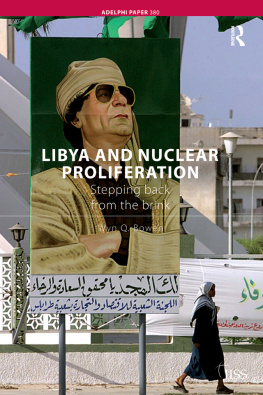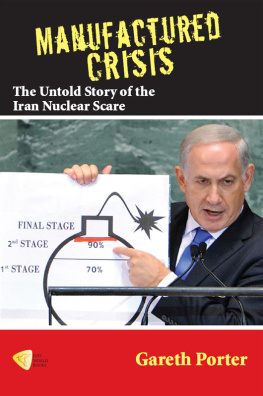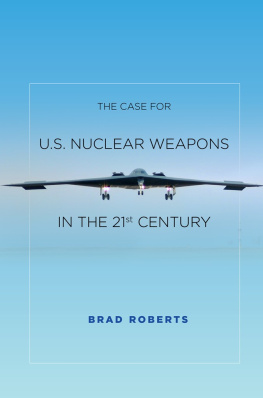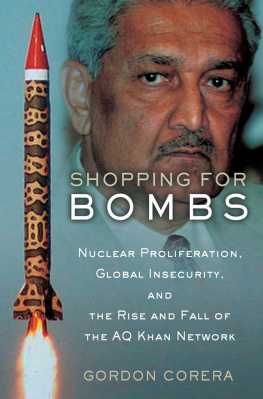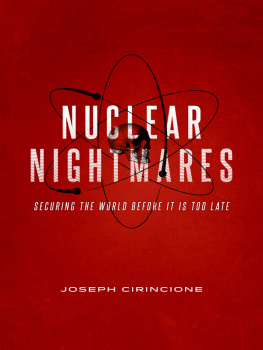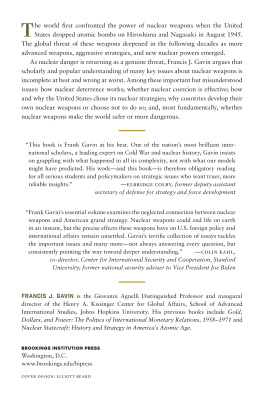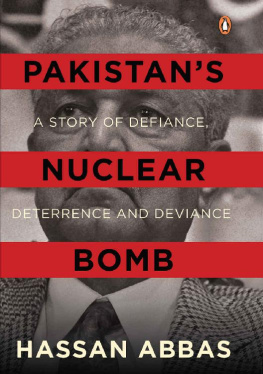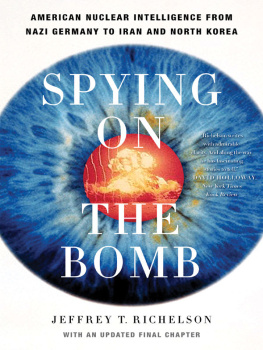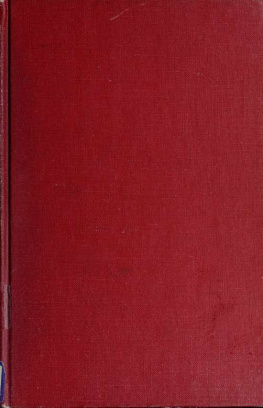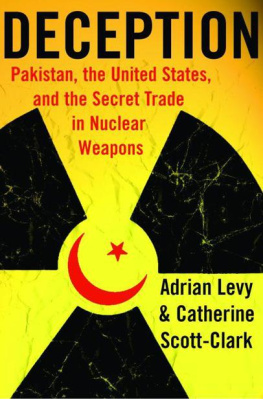ACKNOWLEDGMENTS
A s with our first book on the nuclear black market, much of the credit for this work belongs to the scores of people who shared their information and insights with us. Many of them sat for multiple interviews, and some took risks to help us understand the complexities and nuances of a story that powerful people would have preferred remain concealed in the shadows. Anytime you write about intelligence operations, there is a danger that you wont get enough information to make sense of the story. With the help of people named and unnamed in the book and in these acknowledgments, we believe that we have unlocked enough secrets to provide an accurate portrait of how what appears to be operational success can still result in policy failure.
Many of the people who spoke with us did so on the condition of anonymity. Many people criticize the use of anonymous sources, but this sort of deep examination of an ongoing policy failure, rooted in the intelligence world, would not have been possible without the willingness of many involved to discuss these sensitive matters on a confidential basis. They trusted us to handle their information with care and discretion, and we have done our best to honor that trust.
Among those who openly helped us were the staff of the International Atomic Energy Agency in Vienna. We want to thank Olli Heinonen, the former deputy director general for safeguards, for his guidance. We also want to thank Mohamed ElBaradei, the former director general. Jacques Baute and Matti Tarvainen, both dedicated professionals, provided critical insights. So did Elizabeth Dobie-Sarsam and Ayhan Evrensel, from the IAEA communications team. And we owe a special debt of gratitude to Peter Rickwood for his help and friendship.
Switzerland is regarded, and rightfully so, as a difficult place for an outsider to find information. We were fortunate enough to locate some able guides there. First and foremost, we want to thank Andreas Mueller, the magistrate in charge of the Tinner case, and his assistant, Stefanie Heinrich, for their patience in helping us get the facts straight. We also want to thank Othmar Wyss for explaining the past and interpreting the future, and Ivo Kreiliger, who led us through the Swiss parliamentary commissions report and related material. We also benefited from the work and help of two Swiss journalists, Hansjuerg Zumstein and Christopher Eggenberger.
Many excellent journalists and writers have tackled the Khan network and its vast offshoots over the years. Few have done it better than David Sanger and William Broad of The New York Times, and we are grateful to them for staying after this story. Steve Coll of The New Yorker has brought his brilliance to bear on this subject in many ways over the years, and we benefited greatly from his work. Jim Risen of The New York Times is both a highly skilled investigative reporter who has uncovered many dark secrets and a personal friend; we owe him thanks on both those fronts.
Fulton Armstrong and Bob Baer, two former senior CIA officers, translated the arcane world of the intelligence community for us. Cath Conneely, a skilled researcher, played a vital role in making key interviews happen, and Janey and Bob Wallace served as important sounding boards.
Dominick Anfuso at the Free Press is the rare editor with the courage to take on tough topics and give his authors the freedom to follow the facts wherever they lead. We want to express our deep thanks to him and to his highly professional team for bringing this book to fruition. Dominicks assistant, Leah Miller, kept us on track; Tom Pitoniak copyedited the manuscript with a thorough yet light touch. Thanks also to Martha Levin, Carisa Hays, Nicole Kalian, and Maura OBrien. Our respect for the professionalism of our agent, Kathy Robbins, and her team, especially David Halpern, Rachelle Bergstein, Mike Gillespie, is boundless. We are lucky enough to also count Kathy and her husband, Richard Cohen, as friends and advisers.
ABOUT THE AUTHORS
Catherine Collins has been a reporter for the Chicago Tribune and written for the Los Angeles Times and The New York Times. She has written several books with her husband, Douglas Frantz, including The Nuclear Jihadist and Death on the Black Sea.
Douglas Frantz is a former managing editor of the Los Angeles Times and a former investigative reporter and foreign correspondent at the New York Times. He was part of the New York Times team that won the Pulitzer Prize for Public Service in 2002 for coverage of the aftermath of 9/11.
CHAPTER ONE
JENINS, SWITZERLAND
approached a whitewashed house in the postcard-pretty village of Jenins in eastern Switzerland. Glancing cautiously up and down the narrow, darkened street, two members of the team walked to the door while the others hung back. They knew that no one was home. The owner was a few miles away, just across the border in Liechtenstein. One of the men pulled out a leather pouch and extracted a slender piece of metal. He slipped the metal into the lock and gently wiggled it deeper into the mechanism. As he twisted the pick, the slight torque turned against the locks internal pins and, one by one, they fell into place and the lock opened. Less than a minute later, the pick man and four other team members slipped silently into the apartment and drew the curtains. The sixth stayed outside, motionless in the shadows, watching the street.
Inside, the intruders moved with an economy of motion, each carrying out a preassigned task. Their instructions were precise: Search for and copy every document and computer file in the house. One of the intruders sat down at a desk in a spare bedroom being used as an office and powered up the computer. Removing two screws from the back of the computer, he exposed its hard drive. He plugged a small device about the size of a deck of cards into the computer. The device enabled the technician to download the entire contents of the computer quickly. Two other team members were busy opening drawers and rifling through the bookshelves. They photographed every document that appeared to bear any relation to the occupants business. While the others were doing their jobs, the team leader moved into the other bedroom, where he pulled open dresser drawers, searching beneath the socks and underwear for anything suspicious. It did not take long. He was short, barely five foot eight, so all he could do was run a hand along the top shelf of the closet. That was where he found the first laptop. Pulling it down, he took the laptop to the person sitting at the computer in the other room. Have a crack at this, he said.
The team leader, who was known by his nickname Mad Dog, took out his cell phone and hit speed dial. It was just after midnight on June 21, 2003. Back in Langley, Virginia, where it was early evening, the call was answered on the first ring. Mad Dog used clipped, careful language to tell the person on the other end that the operation was going according to plan. The team expected to be back on the street within a couple of hours.
The call contributed to a building sense of anticipation four thousand miles away. On the third floor of the Central Intelligence Agencys main building on the campus at Langley, a handful of senior officers from the agencys Counter-Proliferation Division had been waiting for word from Switzerland. One of them picked up the telephone to relay the status of the first phase up the chain of command. The call went to Stephen Kappes, the ambitious ex-marine who was the deputy director of clandestine operations. Kappes had a strong personal interest in the goings-on in the small village in eastern Switzerland that night. He was no doubt pleased with the news.


